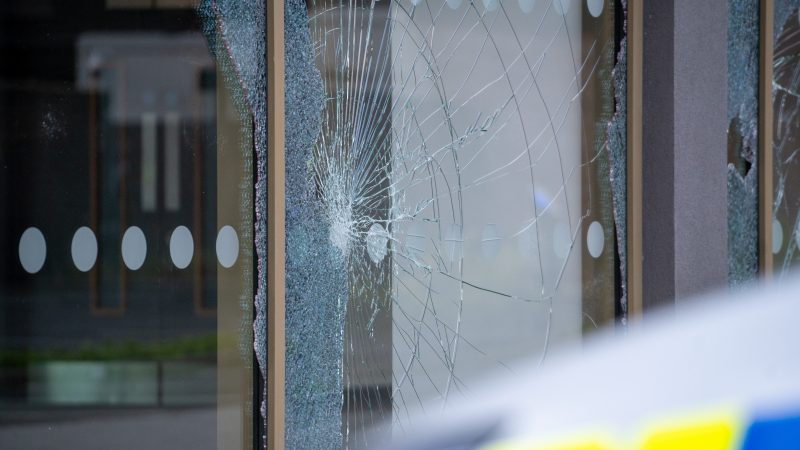UK
‘Rioters don’t represent public frustrations, but the community clean-up does’

The riots in Hartlepool, like those across the country, have shocked and appalled us all. The violent thugs who attacked local businesses, set cars alight, and intimidated residents in their own homes have absolutely no justification for their behaviour. None whatsoever.
The police have responded admirably, continuing to make arrests, and the courts are fast-tracking cases to ensure that those responsible are prosecuted to the fullest extent of the law. I completely support the tough and uncompromising stance taken by the Prime Minister and Home Secretary.
The scenes we witnessed in Hartlepool do not represent our town, our people, or our values.
‘Clean-up after riot was the true face of Hartlepool’
The morning after the riot, I spoke with victims, including the owners of a butcher shop on Murray Street that has been in business for 40 years. Their windows were smashed, and they described how the owner stood guard through the night, terrified that the thugs would break in and gain access to the knives that are the tools of his trade. This was an act of remarkable courage in defence of his community.
As I walked through the debris at 7 a.m., council workers were already on the scene, beginning the clean-up. Volunteers soon followed with litter pickers and sweeping brushes. Local community groups, like our Salaam Centre, opened their doors, providing teas and coffees for anyone in need. Residents arrived with donations to help the local businesses that had been targeted.
This was the true face of Hartlepool on display – our values of community and togetherness shining brightly in response to lawless thuggery. We are the many; they are the few.
‘Only appropriate response to riots is the full force of the law’
Some national politicians, in a desperate search for their latest grift, want to portray these riots as the inevitable consequence of the frustrations felt by the so-called “silent majority.” This is utter rubbish. The majority wants nothing to do with these thugs.
Of course, it is right to acknowledge that we need an open, calm, and constructive conversation about asylum and immigration. The systems underpinning both are hopelessly broken after 14 years of Conservative chaos and mismanagement. We need to discuss the socio-economic impact on different communities. We need greater transparency to counteract the lies being spread on social media. We must listen to people’s genuine concerns and, where possible, address them.
But none of that – none of it – can be in response to these riots. The only appropriate response to violent thuggery is the full force of the law. As I write this, the first sentence has just been handed down for one of those arrested in Hartlepool, and the public’s reaction has been overwhelming: ‘Good riddance.’
Moreover, if we are to have a national conversation about asylum and immigration, we must also confront the challenges posed by social media and the normalisation of racist bigotry that too often finds a home in the dark recesses of Facebook groups or X comment threads. Lies and misinformation spread like wildfire, disgusting racial abuse has become commonplace, and the far right uses these platforms to organise and mobilise.
‘What happens online can spill over onto our streets’
Online deindividuation, a by-product of the anonymity too often afforded by social media, promotes and spreads hate in a way that has become a threat to our national security. A crime is a crime, wherever it happens, and we must ensure that the law applies everywhere. Online anonymity must end so that people are held accountable for their criminal actions, regardless of where they commit them.
Because, as we saw in Hartlepool, what happens online can spill over onto our streets. The riots in Hartlepool began with a march, a march organised online and one that deliberately passed by our town’s two mosques and ended in an area with a significant Muslim population. This was no coincidence.
Hartlepool’s Muslim community is extraordinary. They donate to local charities, contribute to our town’s business sector, and work to foster positive connections across our diverse communities. Yet, they feel threatened. They feel scared.
‘Populism, polarisation and post-truth’
One of the worst legacies of the last 14 years (and it is a competitive list) has been the weaponisation of division in politics, what Moises Naím refers to as populism, polarisation, and post-truth. Setting communities against one another through the spread of lies and misinformation, all to secure power and influence.
We’ve seen it from successive Tory Home Secretaries, and most recently, from Nigel Farage, caught red-handed and forced to admit that his claims about the “truth being withheld from us” over Southport were nothing more than him parroting the nonsense of Andrew Tate.
Resisting this division must now become the central mission of the new Labour government and all right-minded people. We must focus on bringing communities together, not pushing them apart. We must deal in facts, not lies. We must recognize that we are always stronger when we are united. The people of Hartlepool have shown that this is possible – now we must make it a reality for everyone in our country.
No comments:
Post a Comment